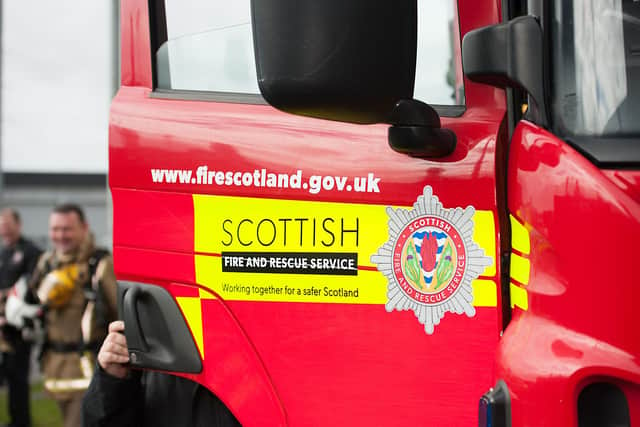Scottish Fire and Rescue Service look to reduce 'unwanted call outs' in Fife
and live on Freeview channel 276
They result in thousands of call outs every year – but only two per cent of them actually result in a fire.
The potential options for responding to AFAs are outlined in a consultation document entitled Time for Change: Reducing Unwanted Fire Alarm Signals and the public is being encouraged to take part and give their views.
Advertisement
Hide AdAdvertisement
Hide AdOptions being looked at include one where operations control staff will call challenge AFAs from non-domestic premises. No response will be mobilised, if questioning through call challenge confirms there is no fire, or signs of one.


Another being considered is non-attendance to AFAs from non-domestic premises, with control staff advising the caller the fire service will not attend unless a back-up 999 call confirming fire, or signs of fire is received.
The 12-week consultation will seek views on three proposed options, which have been developed to allow the SFRS to use its resources more effectively.
Chief Officer Martin Blunden said: “We undertake in the region of 57,000 unnecessary blue light journeys every year responding to workplace AFAs that turn out to be false alarms.
Advertisement
Hide AdAdvertisement
Hide Ad"This brings risks to our crews, other road users and pedestrians as well as having an impact on the environment with an estimated 575 tonnes of carbon emissions produced.
“In almost all cases they are false alarms. In changing our response to these calls, we can use SFRS resources more effectively, including further improving our response to genuine emergencies.
"We can also use this time for more training and fire prevention activity, as well as realising the knock-on benefits of improving road safety and reducing our carbon impact.
“It will also mean less disruption to businesses as they no longer need to wait for us to attend to give the all clear.
Advertisement
Hide AdAdvertisement
Hide Ad“There is no change to how we respond to AFAs that are confirmed fires or from private homes - this is about changing our response to workplace AFAs only.”
Thank you for reading this article on our free-to-read website. We're more reliant on your support than ever as the shift in consumer habits brought about by Coronavirus impacts our advertisers.
Please consider purchasing a subscription to our print newspaper to help fund our trusted, fact-checked journalism.
Comment Guidelines
National World encourages reader discussion on our stories. User feedback, insights and back-and-forth exchanges add a rich layer of context to reporting. Please review our Community Guidelines before commenting.
